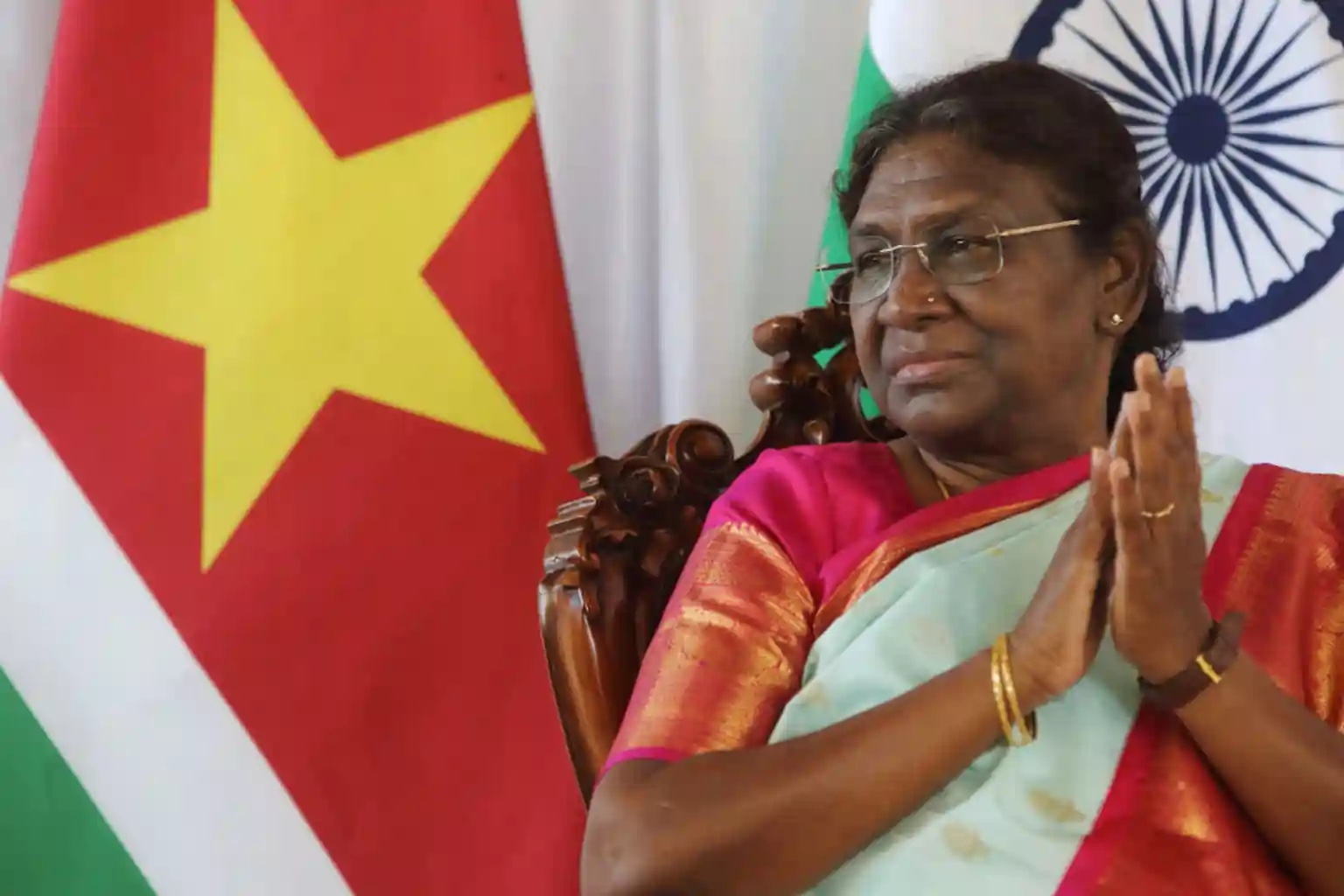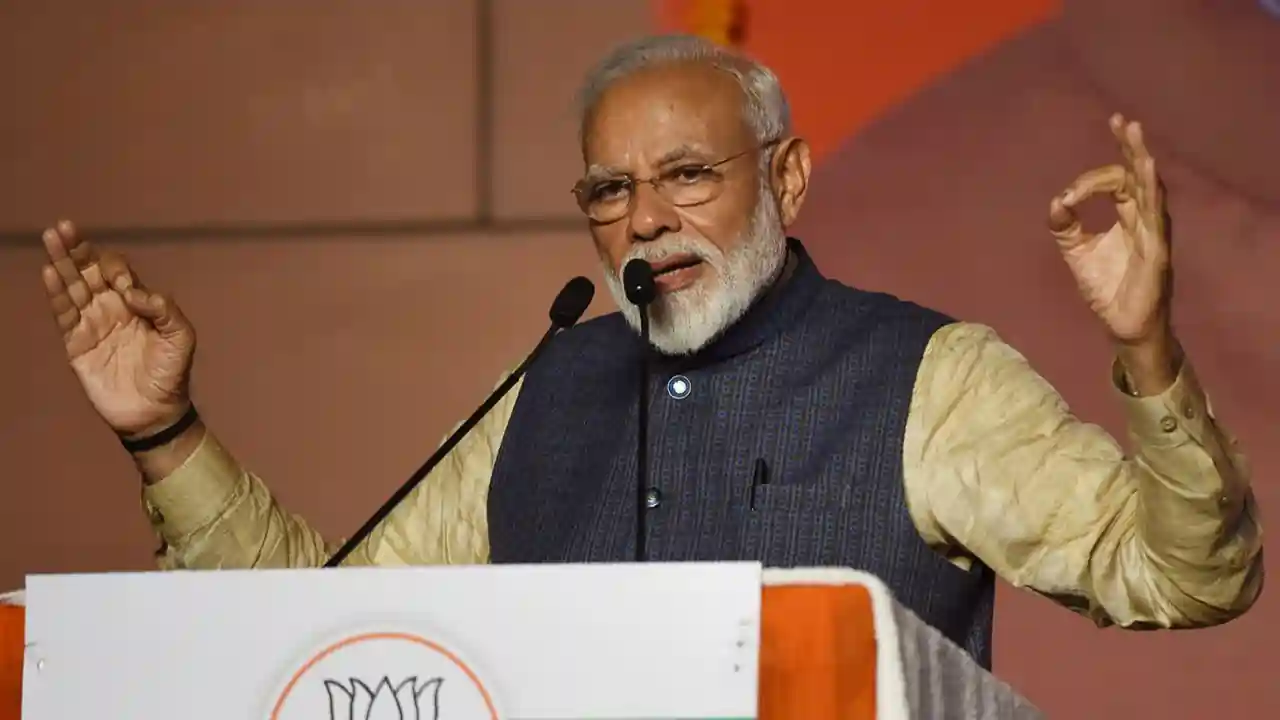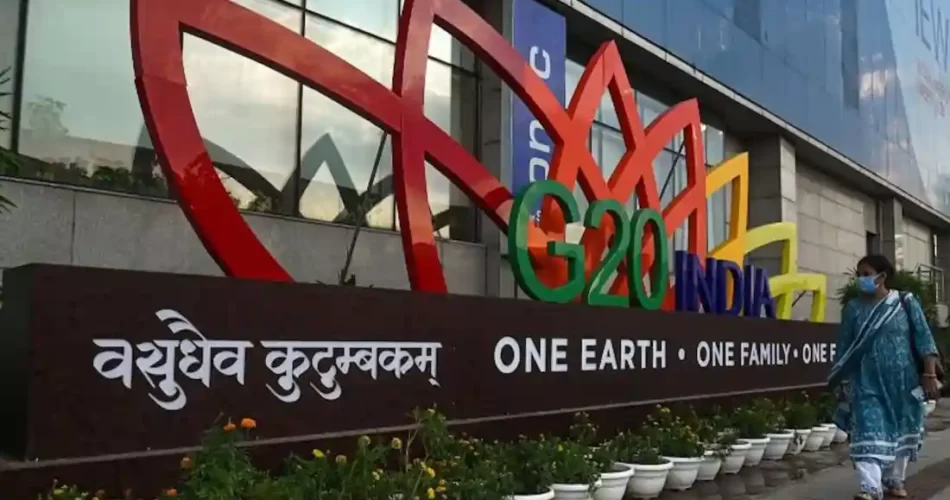Invitations to dinners referring to India by its Sanskrit name — Bharat — have stoked a political dispute and public debate over what the country should be called, its history and colonial legacy, as New Delhi prepares to host world leaders at the G20 summit.
According to a source in the presidential office, invitations were sent to delegates from the world’s top 20 economies on Saturday for a dinner hosted by Indian President Droupadi Murmu under the name “President of Bharat” instead of the usual “President of India.”

Indian President Droupadi Murmu
Both India and Bharat are officially used in the nation of 1.4 billion people, which has more than 20 official languages.
“India, that is, Bharat, shall be a Union of States,” the country’s Constitution states.
Bharat is also the Hindi word for India and is used interchangeably: both appear in Indian passports, for example.
But its use on invitations marks a notable change in the naming convention used by the country on the international stage under Prime Minister Narendra Modi and his Hindu nationalist Bharatiya Janata Party (BJP).
The G20 summit is the first for India as Modi seeks to increase New Delhi’s global influence after nearly a decade in power in which he has positioned himself as a leader determined to shed the country’s colonial past, stressing the need to “free ourselves from the slave mentality.”
Britain ruled India for some 200 years until it gained independence in 1947, and those who prefer Bharat say the name by which the country is best known around the world is a vestige of the colonial era.
Ancient Western civilizations derived the name India from the Sanskrit word for the Indus River-Sindhu-and it was later adapted by the British Empire.
“The word ‘India’ is an abuse given to us by the British, while the word ‘Bharat’ is a symbol of our culture,” BJP politician Harnath Singh Yadav told Indian broadcaster ANI.
Meanwhile, former Indian cricket star Virender Sehwag urged the sport’s officials to use the word Bharat on players’ jerseys during the Men’s Cricket World Cup, to be held in India this year.
“We are Bhartiyas, India is a name given by the British and we are long overdue to officially take back our original name, Bharat,” he said on social media.
What’s in the name Bharat?
During its tenure, the Modi government has taken steps to move the country away from what it has called “vestiges of British rule” and free itself from its “colonial baggage.”
These efforts also include renaming roads and buildings associated with both India’s Mughal and colonial past.
For example, in 2022, the government renamed Rajpath, a 3-kilometer boulevard formerly known as Kingsway that runs through the heart of New Delhi. The new official name, Kartavya Path, will “remove any trace of colonial mentality,” the government said.
And in 2018, three Indian islands named after British rulers were renamed the Andaman and Nicobar Islands to erase “these signs of slavery.”
But the use of “Bharat” in G20 invitations has raised blisters among opposition leaders.
“While there is no constitutional objection to calling India ‘Bharat’, which is one of the country’s two official names, I hope the government is not so foolish as to completely dispense with ‘India’, which has incalculable brand value accumulated over centuries,” Shashi Tharoor, a former diplomat and prominent lawmaker of the main opposition Congress party, said on social media.
Tharoor is also the author of “Inglorious Empire,” a nonfiction work decrying British colonial rule over India.
In July, leaders of 26 Indian opposition parties formed an alliance, known as INDIA (Indian National Developmental Inclusive Alliance), in an attempt to unseat Modi in the upcoming general elections.

PMO INDIA MODI
Coined to evoke a sense of nationalism ahead of the 2024 elections, the INDIA alliance claimed its aim was to defend the country’s democratic institutions.
The Modi government has come under scrutiny from human rights groups and opposition lawmakers for its increasingly strident Hindu nationalist policies, its crackdown on dissent, and its increasing control of the country’s democratic institutions.
Modi has denied repression and, at a June press conference at the White House, said that “if there are no human rights, there is no democracy” and that “there is no place for discrimination” in the country.
Some opposition politicians said the government’s use of Bharat was a response to the formation of the INDIA alliance.
“How can the BJP cross out ‘India’? The country does not belong to one political party; it belongs to [all] Indians,” Raghav Chadha, an Aam Aadmi Party lawmaker and alliance member, said on social media. “Our national identity is not the personal property of the BJP that it can modify at its whim.”

